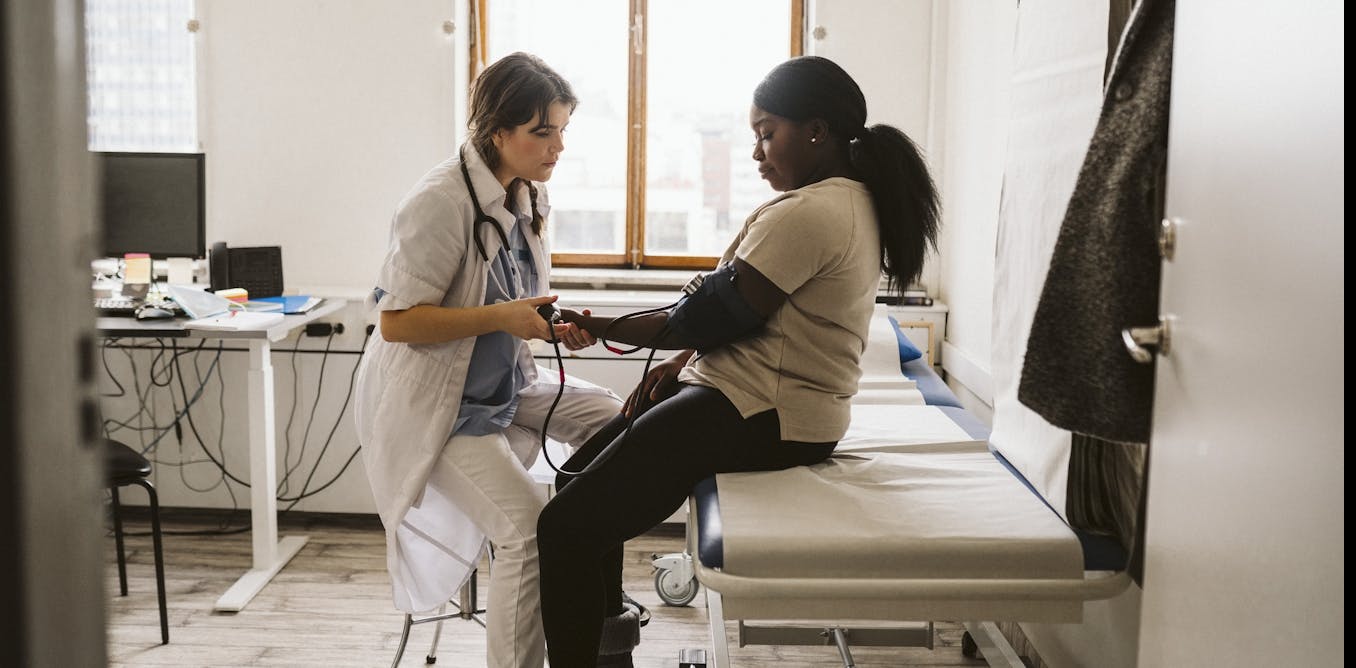Even though preventive care is supposed to be free by law for millions of Americans thanks to the Affordable Care Act, many don’t receive recommended preventive services, especially racial and ethnic minorities and other at-risk patient groups.
The Affordable Care Act exempted preventive services from patient cost-sharing for large chunks of the population. This means that if you receive preventive screening and have private insurance, including through the ACA Marketplace, there should be no copay at time of service, and you shouldn’t get a bill later on. Easy enough, right?
Wrong. Our team of health economists has shown that patients spend millions of dollars every year on unexpected bills for preventive care. The main reason for this is that no specific regulations were put in place to determine exactly which services should be exempted, or for whom, or how often. This omission has left many people on the hook to pay for valuable health care they thought would be free.
Now, in our recently published research in the journal JAMA Network Open, we’ve found that the burden of paying for what should be free preventive care disproportionately falls on some patient groups.

Tetra Images/Getty Images
Inequitable claim denials
Looking at data from over 1.5 million patients, our study demonstrates that insurers deny preventive claims for patients from marginalized communities at higher rates than for those from majority groups.
For example, low-income patients were 43% more likely than high-income patients to have their claims denied. In addition, Asian, Hispanic and non-Hispanic Black patients were each roughly twice as likely as non-Hispanic white patients to have claims denied.
Not only were these patients denied routine benefits, but they also saw large differences in rates of billing errors. For example, patients with a high school diploma or less experienced denials due to this kind of billing error almost twice as often than patients with college degrees. All of these services should have been covered by an insurer.
Research on preventive care access is commonly based only on claims data, which doesn’t typically have information on patient demographics. This limits a study’s ability to detect differences across patient groups. Our study, however, uses a combination of linked claims data, remittance data containing information on why claims were denied and whether they were resubmitted, and demographic data from self-reports, purchase transactions and voter registries. Together, this richer dataset allowed us to examine differences in denials based on race and ethnicity, education and income, including reasons why patients were denied care.
Preventive care is essential
Equitable access to preventive health care is about more than just physicals, although those are important, too. Preventive health care includes key screenings for cancers, cardiovascular disease and diabetes, access to contraceptives, and mental health checkups, among other services. Ensuring that insurers provide equal coverage for these services for all patients is important to improve health outcomes and quality of life for everyone while reducing future health care costs.
Our results paint a picture of the kinds of hurdles patients face when they seek health screenings. Patients from underrepresented groups were not only more likely to be told their care wouldn’t be covered. They were also more likely to have their claims processed incorrectly, leading to more frequent denials and, ultimately, larger medical bills.
Unexpected bills can affect both a patient’s current health and their future use of health care services. These hurdles can exacerbate an already tenuous trust in a fragmented health care system, making patients less likely to return for follow-up screenings.
Stacked coverage denials for patients who live with multiple marginalized identities or who are less able to advocate for themselves can further entrench racial and socioeconomic inequities.
Ensuring equitable access
Our study paints a compelling picture of where different patients may face hurdles for getting preventive care, but more research is necessary to identify how to ensure equitable access.
As our study looked only at preventive services, we will also need to see how our findings generalize to other forms of health care. More research is also needed to understand how other vulnerable patient groups, such as LGBTQ+ patients or patients with multiple chronic conditions, fare when trying to access care.
Our team is currently studying how actual bills for care differ across patient groups and how patients respond when bills arrive. In our study, more than two-thirds of denied claims were never resubmitted to insurers, meaning that many billing errors go uncorrected at patients’ expense.
Equitable policy on multiple fronts can help rectify the way preventive care is inconsistently and inequitably provided. These include uniform coverage of preventive care by insurers, standardized billing practices for physicians and improved means for patients to advocate for themselves. This can help ensure that everyone has appropriate access to lifesaving health care.


